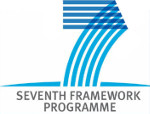Clustering of energy balance-related behaviours and parental education in European preschool children: The ToyBox study
Miguel-Berges, M.L. (Universidad de Zaragoza) ; Zachari, K. ; Santaliestra-Pasias, A.M. (Universidad de Zaragoza) ; Mouratidou, T. ; Androutsos, O. ; Iotova, V. ; Galcheva, S. ; De Craemer, M. ; Cardon, G. ; Koletzko, B. ; Kulaga, Z. ; Manios, Y. ; Moreno, L.A. (Universidad de Zaragoza)
Resumen: Energy balance-related behaviours (EBRB) are established in childhood and seem to persist through to adulthood. A lower parental educational level was associated with unhealthy behavioural patterns. The aim of the study is to identify clusters of EBRB and examine their association with preschool children''s BMI and maternal, paternal and parental education. A subsample of the ToyBox study (n 5387) conducted in six European countries was used. Six behavioural clusters (''healthy diet and low activity'', ''active'', ''healthy lifestyle'', ''high water and screen time; low fruits and vegetables (F&V;) and physical activity (PA)'', ''unhealthy lifestyle'' and ''high F&V; consumers'') emerged. The healthiest group characterised by high water and F&V; consumption and high PA z scores (''healthy lifestyle'') was more prevalent among preschool children with at least one medium- or higher-educated parent and showed markedly healthier trends for all the included EBRB. In the opposite, the ''unhealthy lifestyle'' cluster (characterised by high soft drinks and screen time z scores, and low water, F&V; and PA z scores) was more prevalent among children with lower parental, paternal and maternal education levels. OR identified that children with lower maternal, paternal and parental education levels were less likely to be allocated in the ''healthy lifestyle'' cluster and more likely to be allocated in the ''unhealthy lifestyle'' cluster. The ''unhealthy lifestyle'' cluster was more prevalent among children with parents in lower parental educational levels and children who were obese. Therefore, parental educational level is one of the key factors that should be considered when developing childhood obesity prevention interventions.
Idioma: Inglés
DOI: 10.1017/S0007114517003129
Año: 2017
Publicado en: British journal of nutrition 118, 12 (2017), 1089-1096
ISSN: 0007-1145
Factor impacto JCR: 3.657 (2017)
Categ. JCR: NUTRITION & DIETETICS rank: 23 / 81 = 0.284 (2017) - Q2 - T1
Factor impacto SCIMAGO: 1.612 - Nutrition and Dietetics (Q1) - Medicine (miscellaneous) (Q1)
Financiación: info:eu-repo/grantAgreement/EC/FP7/245200/EU/Multifactorial evidence based approach using behavioural models in understanding and promoting fun, healthy food, play and policy for the prevention of obesity in early childhood: ToyBox/TOYBOX
Tipo y forma: Artículo (Versión definitiva)
Área (Departamento): Área Enfermería (Dpto. Fisiatría y Enfermería)
Área (Departamento): Proy. investigación DZA (Dpto. Fisiatría y Enfermería)
 Debe reconocer adecuadamente la autoría, proporcionar un enlace a la licencia e indicar si se han realizado cambios. Puede hacerlo de cualquier manera razonable, pero no de una manera que sugiera que tiene el apoyo del licenciador o lo recibe por el uso que hace.
Debe reconocer adecuadamente la autoría, proporcionar un enlace a la licencia e indicar si se han realizado cambios. Puede hacerlo de cualquier manera razonable, pero no de una manera que sugiera que tiene el apoyo del licenciador o lo recibe por el uso que hace.
Exportado de SIDERAL (2020-10-06-08:30:45)
Visitas y descargas
Idioma: Inglés
DOI: 10.1017/S0007114517003129
Año: 2017
Publicado en: British journal of nutrition 118, 12 (2017), 1089-1096
ISSN: 0007-1145
Factor impacto JCR: 3.657 (2017)
Categ. JCR: NUTRITION & DIETETICS rank: 23 / 81 = 0.284 (2017) - Q2 - T1
Factor impacto SCIMAGO: 1.612 - Nutrition and Dietetics (Q1) - Medicine (miscellaneous) (Q1)
Financiación: info:eu-repo/grantAgreement/EC/FP7/245200/EU/Multifactorial evidence based approach using behavioural models in understanding and promoting fun, healthy food, play and policy for the prevention of obesity in early childhood: ToyBox/TOYBOX
Tipo y forma: Artículo (Versión definitiva)
Área (Departamento): Área Enfermería (Dpto. Fisiatría y Enfermería)
Área (Departamento): Proy. investigación DZA (Dpto. Fisiatría y Enfermería)
Exportado de SIDERAL (2020-10-06-08:30:45)
Enlace permanente:
Visitas y descargas
Este artículo se encuentra en las siguientes colecciones:
Artículos
Registro creado el 2018-02-16, última modificación el 2020-10-06
